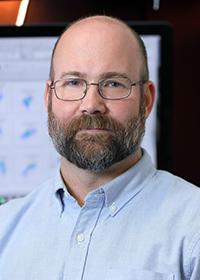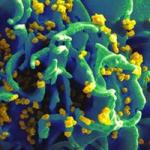
Research Topics
Current standard of care treatments for head and neck cancer unrelated to human papillomavirus (including oral cavity cancer and larynx cancer) fail to provide long-term cures for many patients. Through the integration of immunotherapy into these treatments based on solid research laboratory evidence, we aim to improve disease-free survival for head and neck cancer patients. The study of tumor biopsies before and after treatment allows our team to understand exactly what is happening to the immune system during these treatments and determine how to optimize these treatments to be as safe and powerful as possible. Our team is also applying important lessons learned from studying these types of cancers to other problematic head and neck neoplasms, such as tonsil cancers, caused by chronic infection with specific types of human papillomavirus (HPV) and recurrent respiratory papillomatosis, caused by other types of HPV. Our comprehensive scientific and clinical research program is one of the few worldwide to study the immunologic aspects of both cancerous and papillomatous lesions of the head and neck.
Biography
Dr. Allen graduated from the Texas A&M Health Science Center College of Medicine and is an alumnus of the Clinical Research Training Program (CRTP) at the NIH Clinical Center. After medical school, he received otolaryngology surgical training at Washington University in St. Louis/Barnes-Jewish Hospital and sub-specialty fellowship training in laryngological surgery at the University of Washington. While maintaining a laryngology practice and faculty position at Johns Hopkins, Dr. Allen’s initial appointment to the NIH was through the National Institute on Deafness and Other Communication Disorders (NIDCD) Otolaryngology Surgeon Scientist Program. After five years of joint Johns Hopkins and NIH faculty appointments, Dr. Allen transitioned to a full-time NIH position within the NIDCD where, in 2020, he was tenured and named Chief of the Section on Translational Tumor Immunology. After serving as Acting Head and Neck Surgery Branch Chief and NIDCD Acting Clinical Director for a period, he transitioned to the Head and Neck Section of the Surgical Oncology Program at CCR. Dr. Allen has received numerous specialty society awards and has authored over 100 peer-reviewed publications.
Selected Publications
- Redman JM, Friedman J, Robbins Y, Sievers C, Yang X, Lassoued W, Sinkoe A, Papanicolau-Sengos A, Lee CC, Marte JL, Turkbey E, Mydlarz W, Joshi A, London NR Jr, Pierce M, Taylor R, Hong S, Nguyen A, Soon-Shiong P, Schlom J, Gulley JL, Allen CT. Enhanced neoepitope-specific immunity following neoadjuvant PD-L1 and TGF-β blockade in HPV-unrelated head and neck cancer. J Clin Invest. 2022;132(18).
- Hong Y, Robbins Y, Yang X, Mydlarz WK, Sowers A, Mitchell JB, Gulley JL, Schlom J, Gameiro SR, Sievers C, Allen CT. Cure of syngeneic carcinomas with targeted IL-12 through obligate reprogramming of lymphoid and myeloid immunity. JCI Insight. 2022;7(5).
- Sievers C, Robbins Y, Bai K, Yang X, Clavijo PE, Friedman J, Sinkoe A, Norberg SM, Hinrichs C, Van Waes C, Allen CT. Comprehensive multiomic characterization of human papillomavirus-driven recurrent respiratory papillomatosis reveals distinct molecular subtypes. Commun Biol. 2021;4(1):1416.
- Lee MY, Robbins Y, Sievers C, Friedman J, Abdul Sater H, Clavijo PE, Judd N, Tsong E, Silvin C, Soon-Shiong P, Padget MR, Schlom J, Hodge J, Hinrichs C, Allen C. Chimeric antigen receptor engineered NK cellular immunotherapy overcomes the selection of T-cell escape variant cancer cells. J Immunother Cancer. 2021;9(3).
- Friedman J, Moore EC, Zolkind P, Robbins Y, Clavijo PE, Sun L, Greene S, Morisada MV, Mydlarz WK, Schmitt N, Hodge JW, Schreiber H, Van Waes C, Uppaluri R, Allen C. Neoadjuvant PD-1 Immune Checkpoint Blockade Reverses Functional Immunodominance among Tumor Antigen-Specific T Cells. Clin Cancer Res. 2020;26(3):679-689.
Related Scientific Focus Areas
This page was last updated on Friday, May 16, 2025



